Every business in Beirut is impacted by the blast, economic official says
From CNN's Schams Elwazer
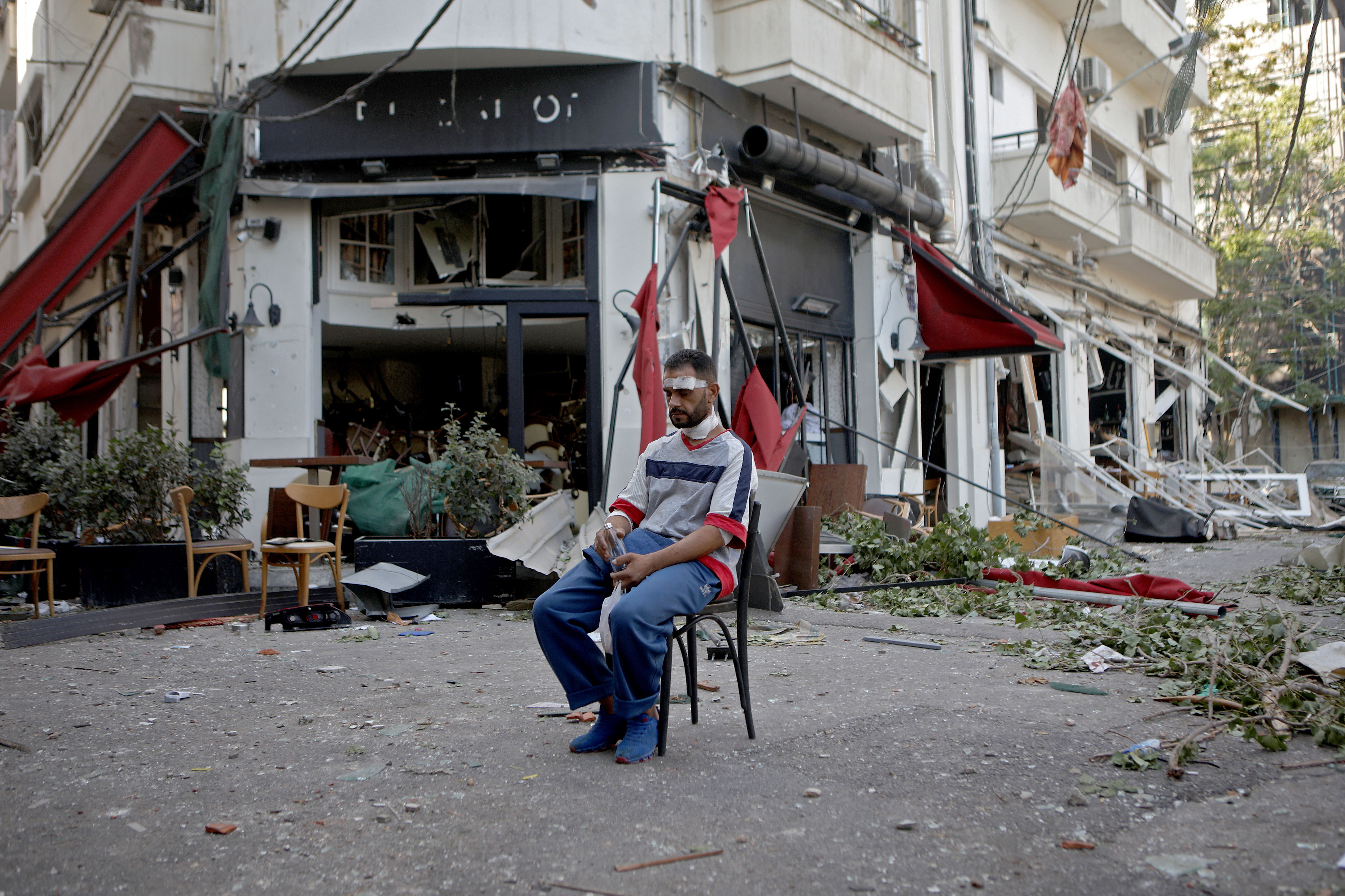 An injured person sits by a restaurant on August 5. Patrick Baz/AFP/Getty Images
An injured person sits by a restaurant on August 5. Patrick Baz/AFP/Getty ImagesEvery single business in Beirut has been affected by yesterday's deadly blast, Lebanon's Economy Minister Raoul Nehme said.
“There is not one apartment in Beirut that wasn’t impacted, not one businesses that wasn’t impacted – whether the storefront of the goods” he said.
”The impact on the economy is massive and the port has been practically erased,” Nehme told CNBC Arabia in an interview Wednesday, adding it was too soon to fully gauge the scale of the damage on the economy.
“No one can know the numbers right now. One billion [dollars], two billion, three, five, ten – we can’t know. It’s too soon. But it’s very high and more than our capacity,” he added.
He said the government’s priority was to secure people’s basic necessities – mainly food but also supplies to help repair the extensive damage to homes and infrastructure across the city.
Turkey sends rescue and health care teams to Beirut
From CNN's Gul Tuysuz
Turkey is sending search and rescue teams, health care workers, medical supplies and other urgent humanitarian aid to help in the aftermath of the blast in Beirut, according to the Turkish foreign ministry.
Turkey is also planning on setting up a field hospital, the ministry said in a written statement.
Qatar sends medical supplies to Lebanon for explosion victims
From CNN's Jomana Karadsheh
Qatar sent a plane filled with medical supplies to Lebanon to help victims of the Beirut explosion, according to a tweet from the Qatari government.
The first plane arrived today, and the government will send three more carrying equipment for hospitals.
Lebanon’s health sector is suffering from two crises, Covid-19 and explosion aftermath, health minister says
From CNN’s Mohammed Tawfeeq
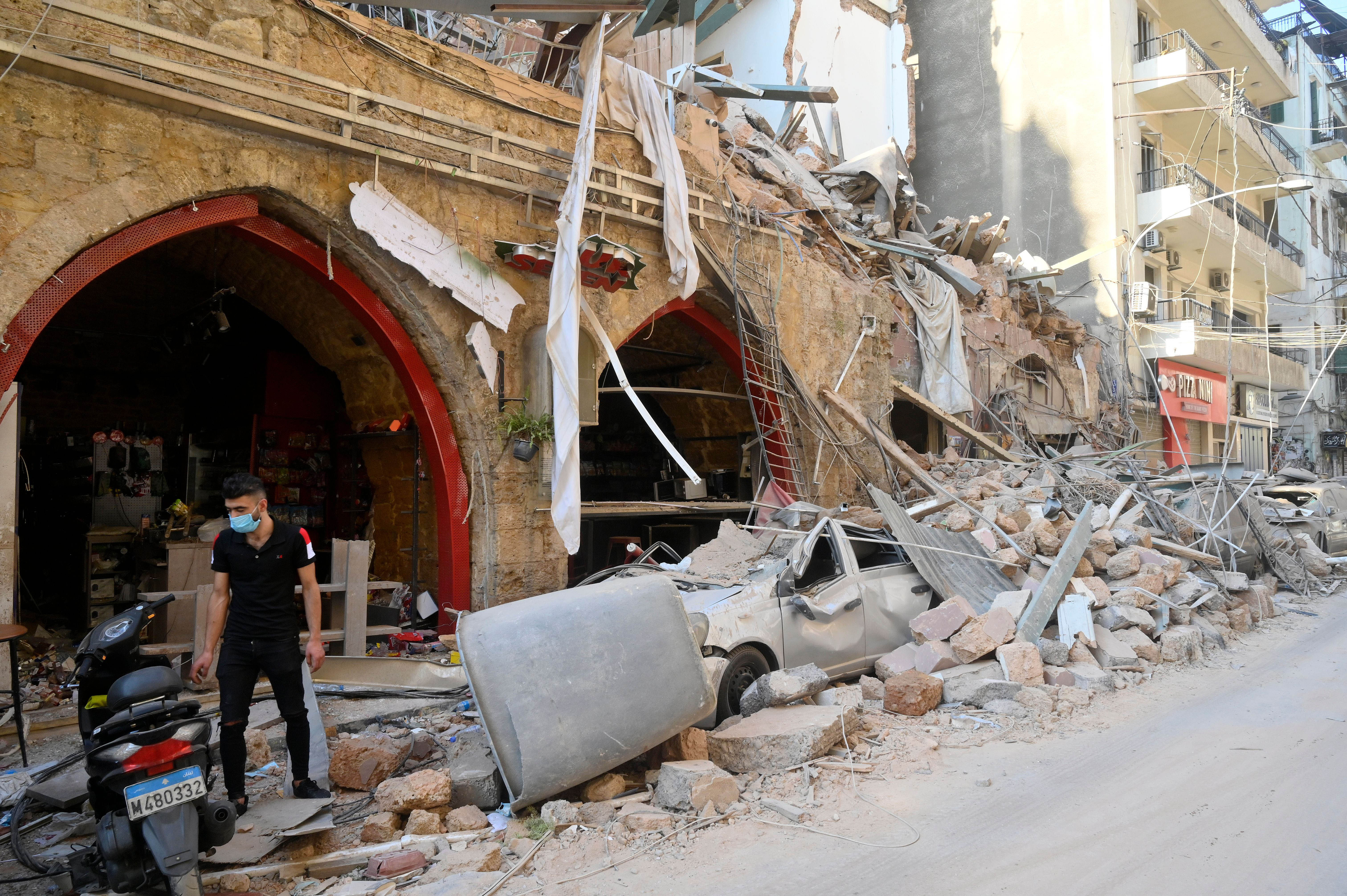 A person stands by damaged buildings and vehicles on August 5. Wael Hamzeh/EPA-EFE/Shutterstock
A person stands by damaged buildings and vehicles on August 5. Wael Hamzeh/EPA-EFE/ShutterstockLebanon's Health Minister Hamad Hassan said Tuesday’s explosion that killed at least 100 people and wounded 4,000 added to the country's health care system crisis as it has been already struggling with the Covid-19 pandemic.
"It requires everyone to engage positively from politicians, political parties, authorities, and from all friendly and brotherly countries because we suffer from a shortage in the number of beds and a lack of equipment to help injured people and those are in critical conditions," Hassan added.
Here's what we know so far about the Beirut blast
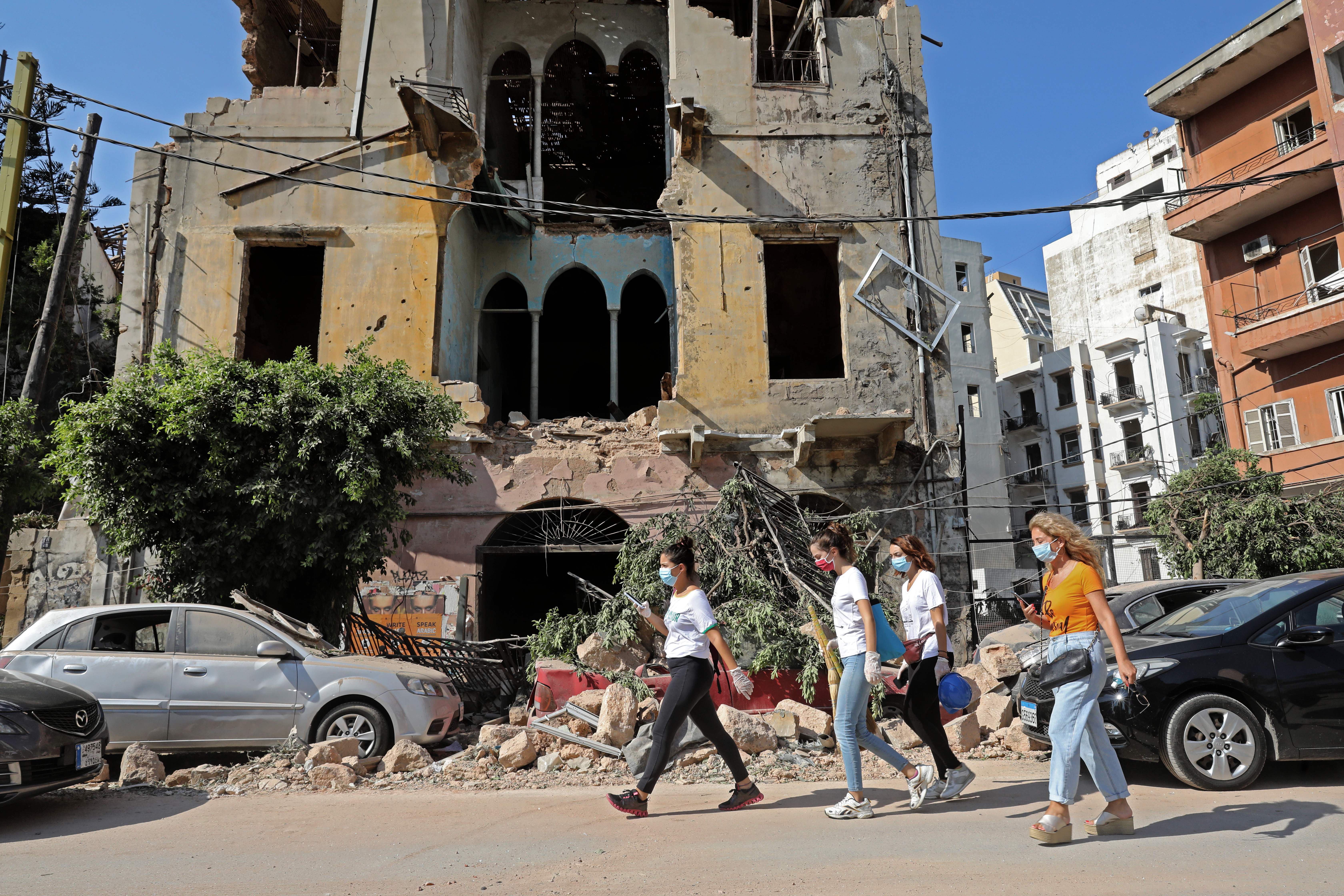 People walk past a damaged building on August 5. Anwar Amro/AFP/Getty Images
People walk past a damaged building on August 5. Anwar Amro/AFP/Getty ImagesA deadly explosion shook Beirut yesterday. The Lebanon capital's 4 million residents woke this morning to the full horror and scale of the damage to their city, lives, and livelihoods.
If you're just reading in now, here's what we know so far about the massive blast:
Watch CNN's Ben Wedeman report:
At least 300,000 people displaced by explosion, Beirut governor says
From CNN's Schams Elwazer
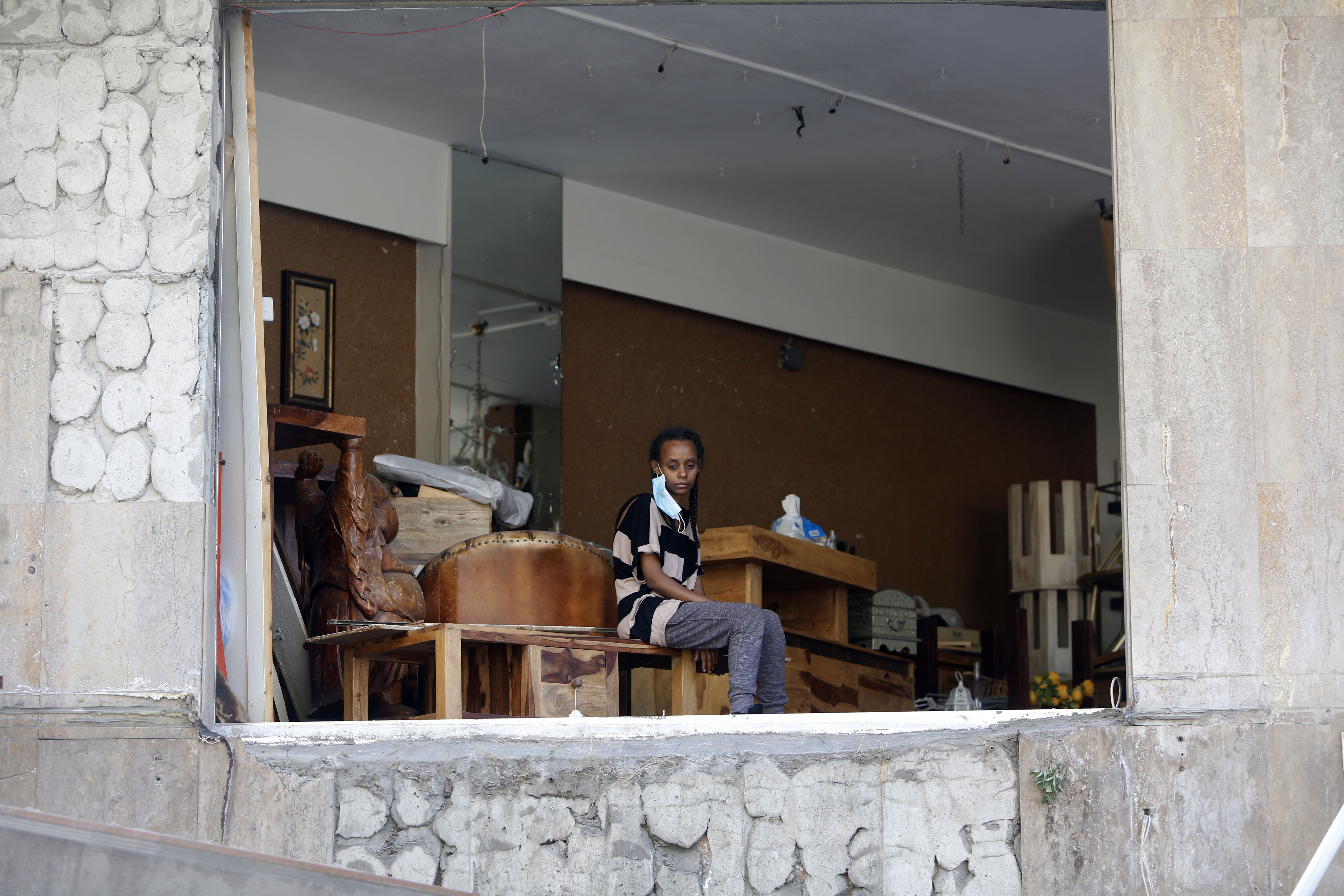 A person looks out of the collapsed facade of an apartment on August 5. Marwan Tahtah/Getty Images
A person looks out of the collapsed facade of an apartment on August 5. Marwan Tahtah/Getty ImagesAt least 300,000 people have been displaced from their homes by Tuesday's devastating explosion, Beirut's governor Marwan Abboud said in an interview with Jordan's state-owned channel Al Mamlaka.
"There are more than 300,000 Lebanese citizens unable to sleep in their own homes," Abboud said during the telephone interview. "Half of Beirut's population have homes that are unliveable for the foreseeable future — for the next two weeks."
Images and videos from the immediate aftermath of the blast show homes destroyed and covered with shattered glass.
At least 100 people were killed, and 4,000 more were wounded in the explosion, according to state media. That death toll is expected to rise as hundreds remain missing.
“We stand in solidarity with the people of Lebanon,” World Health Organization says
From CNN's Naomi Thomas
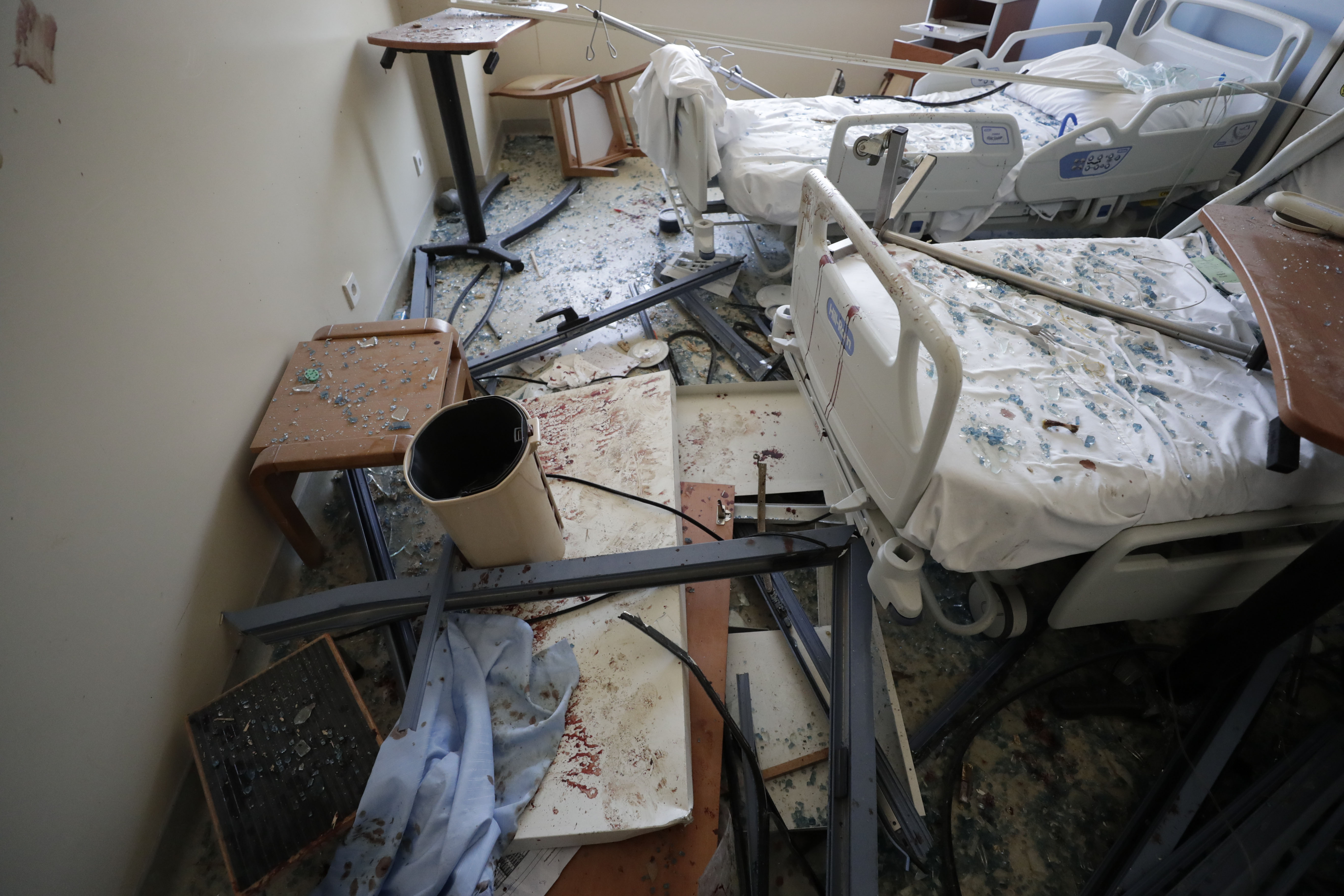 A damaged hospital in Beirut is seen on August 5. Hassan Ammar/AP
A damaged hospital in Beirut is seen on August 5. Hassan Ammar/APDr. Mike Ryan, director of the World Health Organization (WHO) Health Emergencies Programme has said it is assisting with the crisis in Beirut and stands in solidarity with the Lebanese people.
Ryan was speaking during a question and answer session streamed live on WHO social media platforms Wednesday.
“It’s a really very shocking event,” Ryan said.
“It’s a very sad day. We stand in solidarity with the people of Lebanon, and we will do everything in our power, as WHO and the UN system, to support them.
“Our teams are on the ground. Our WHO country team is on the ground. We have logisticians there and others,” he added. “And we’ve already begun dispatching trauma and surgical kits from out regional warehouse in Dubai.
The UAE Royal Air Wing donated the cost of transporting the kits to Lebanon, Ryan said.
The WHO has also placed emergency medical teams on standby, to be deployed if requested by the Lebanese government.
Lebanese customs head says he sent six memos warning of dangerous substances stored at Beirut’s port
From CNN's Nada AlTaher
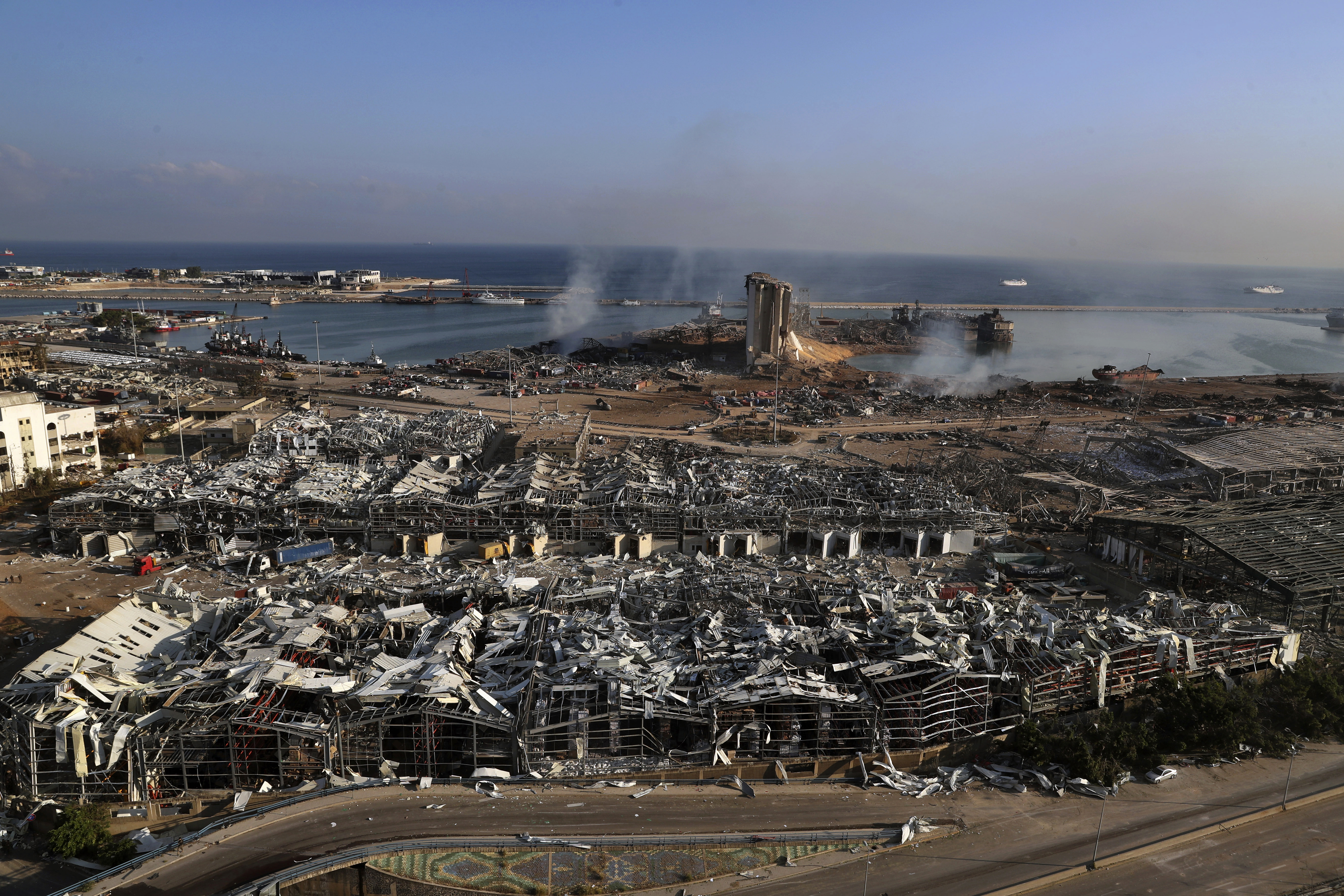 The aftermath of the explosion is pictured on August 5. Bilal Hussein/AP
The aftermath of the explosion is pictured on August 5. Bilal Hussein/APThe head of Lebanon's Customs Authority Badri Daher has said he repeatedly warned the country's judiciary about dangerous substances stored at Beirut's port.
Daher said he sent six memos to judiciary officials warning that the substances posed a danger to the public, according to Lebanon’s LBC channel.
“Daher revealed that he asked to re-export these materials, but this matter did not happen," LBC reported.
LBC did not report the dates on which the memos were sent.
The explosion is thought to have been caused by 2,750 tonnes of ammonium nitrate stored for six years without safety measures at the port, according to Lebanese President Michel Aoun.
Aoun has promised a transparent investigation into the causes of Tuesday’s explosion and vowed that those responsible will be held accountable and punished, amid mounting public anger over Tuesday's disaster.
UN Secretary General offers condolences to families of victims
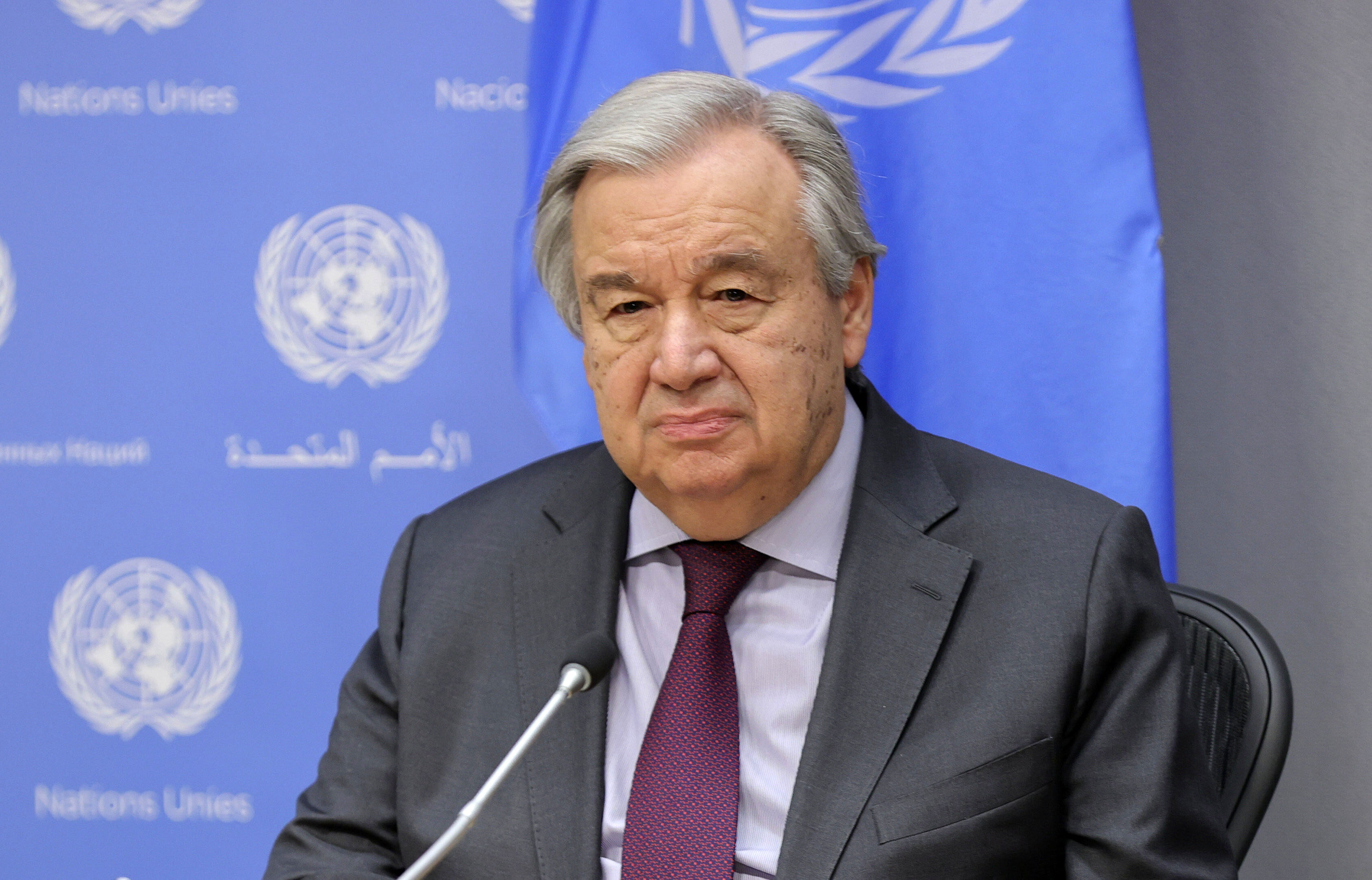 United Nations Secretary-General António Guterres holds a briefing in New York on March 10. Luiz Rampelotto/EuropaNewswire/picture-alliance/dpa/AP
United Nations Secretary-General António Guterres holds a briefing in New York on March 10. Luiz Rampelotto/EuropaNewswire/picture-alliance/dpa/APUnited Nations (UN) Secretary General Antonio Guterres has offered his "deepest condolences" to those affected by the explosion in Beirut.
"I wish all injured, including United Nations personnel, a speedy recovery," he said on Twitter Wednesday.
"The [UN] remains committed to supporting Lebanon at this difficult time."
The UN High Commissioner for Refugees Filippo Grandi also said the agency stood "in solidarity with people of Beirut and Lebanon in these tragic and testing times," in a statement released Wednesday.

 5 years ago
507
5 years ago
507 

